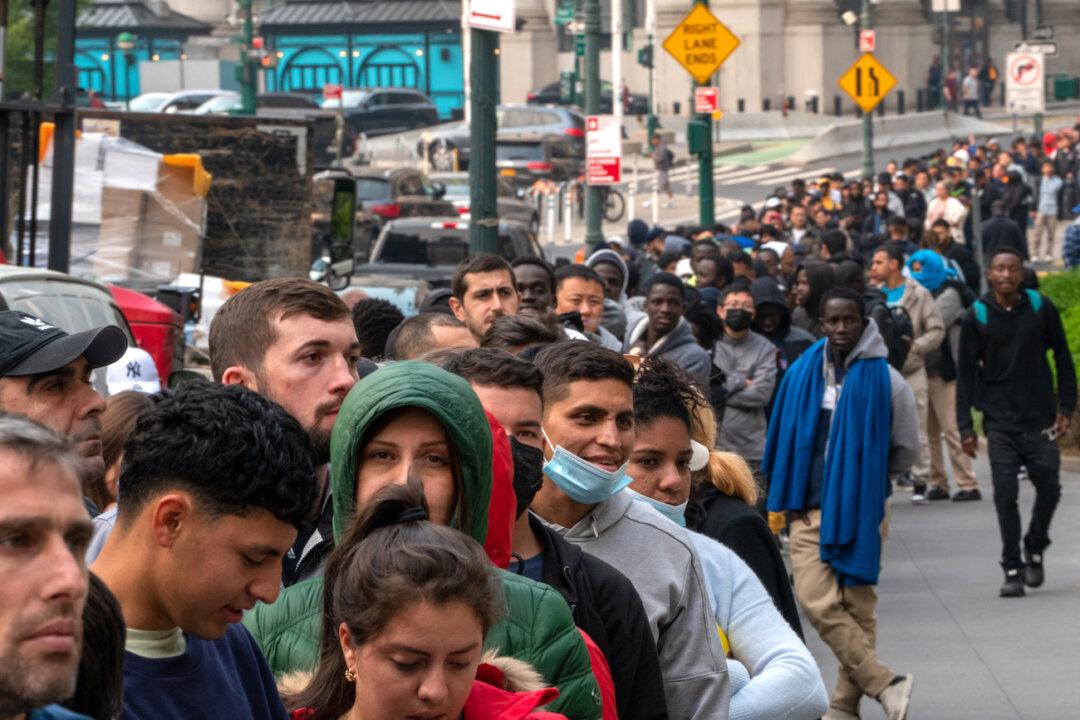The Supreme Court is hearing oral argument on Nov. 28 surrounding double jeopardy and how courts may review the Justice Department’s determination that an illegal immigrant shouldn’t be removed due to “exceptional and extremely unusual hardship.”
That language comes from the Immigration and Nationality Act (INA), which allows the U.S. attorney general to make such a determination blocking removal. The law includes a caveat that allows federal courts to review “constitutional claims or questions of law” related to how the Justice Department decided an immigrant’s case.





